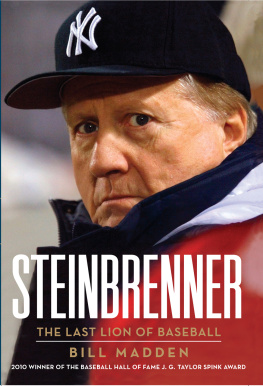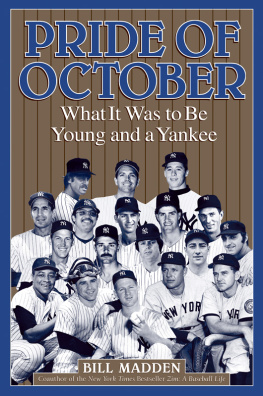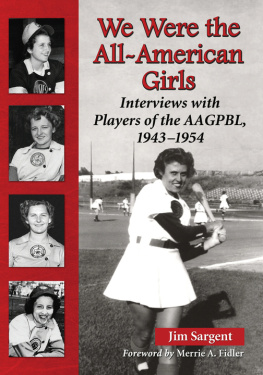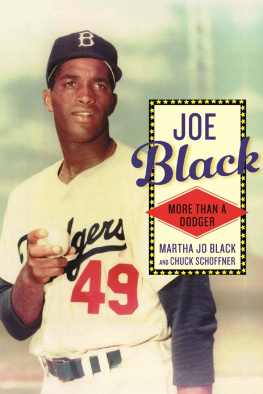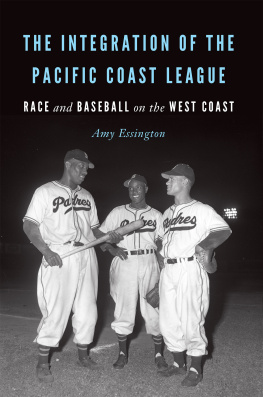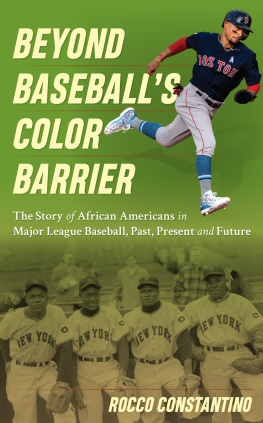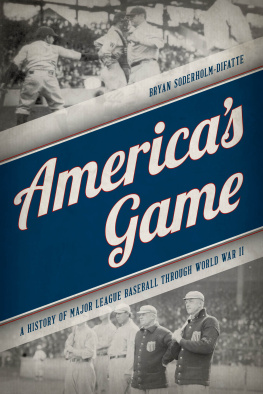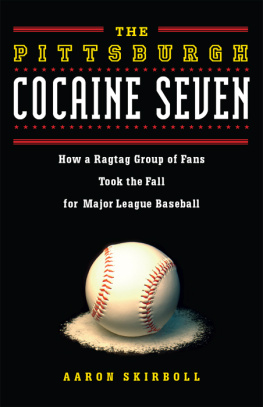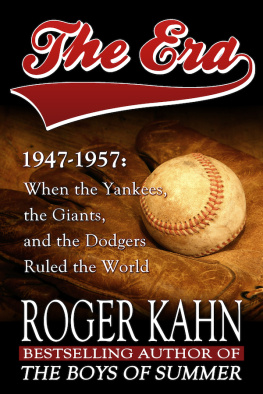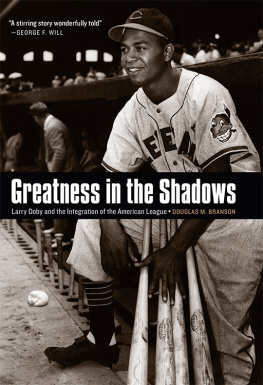Bill Madden - 1954: The Year Willie Mays and the First Generation of Black Superstars Changed Major League Baseball Forever
Here you can read online Bill Madden - 1954: The Year Willie Mays and the First Generation of Black Superstars Changed Major League Baseball Forever full text of the book (entire story) in english for free. Download pdf and epub, get meaning, cover and reviews about this ebook. year: 2014, publisher: Hachette Books, genre: Detective and thriller. Description of the work, (preface) as well as reviews are available. Best literature library LitArk.com created for fans of good reading and offers a wide selection of genres:
Romance novel
Science fiction
Adventure
Detective
Science
History
Home and family
Prose
Art
Politics
Computer
Non-fiction
Religion
Business
Children
Humor
Choose a favorite category and find really read worthwhile books. Enjoy immersion in the world of imagination, feel the emotions of the characters or learn something new for yourself, make an fascinating discovery.

- Book:1954: The Year Willie Mays and the First Generation of Black Superstars Changed Major League Baseball Forever
- Author:
- Publisher:Hachette Books
- Genre:
- Year:2014
- Rating:5 / 5
- Favourites:Add to favourites
- Your mark:
1954: The Year Willie Mays and the First Generation of Black Superstars Changed Major League Baseball Forever: summary, description and annotation
We offer to read an annotation, description, summary or preface (depends on what the author of the book "1954: The Year Willie Mays and the First Generation of Black Superstars Changed Major League Baseball Forever" wrote himself). If you haven't found the necessary information about the book — write in the comments, we will try to find it.
Seven years after Jackie Robinson had broken the baseball color line, 1954 was a triumphant watershed season for black playersand, in a larger sense, for baseball and the country as a whole. While Doby was the dominant player in the American League, Mays emerged as the preeminent player in the National League, with a flair and boyish innocence that all fans, black and white, quickly came to embrace. Mays was almost instantly beloved in 1954, much of that due to how seemingly easy it was for him to live up to the effusive buildup from his Giants manager, Leo Durocher, a man more widely known for his ferocious nice guys finish last attitude.
Award-winning, New York Times bestselling author Bill Madden delivers the first major book to fully examine the 1954 baseball season, drawn largely from exclusive recent interviews with the major players themselves, including Mays and Doby as well as New York baseball legends from that era: Yogi Berra and Whitey Ford of the Yankees, Monte Irvin of the Giants, and Carl Erskine of the Dodgers. 1954 transports readers across the baseball landscape of the timefrom the spring training camps in Florida and Arizona to baseball cities including New York, Baltimore, Chicago, and Clevelandas future superstars such as Hank Aaron, Ernie Banks, and others entered the leagues and continued to integrate the sport.
Weaving together the narrative of one of baseballs greatest seasons with the racially charged events of that year, 1954 demonstrates how our national pastimewith the notable exception of the Yankees, who represented white supremacy in the gamewas actually ahead of the curve in terms of the acceptance of black Americans, while the nation at large continued to struggle with tolerance.
Bill Madden: author's other books
Who wrote 1954: The Year Willie Mays and the First Generation of Black Superstars Changed Major League Baseball Forever? Find out the surname, the name of the author of the book and a list of all author's works by series.

